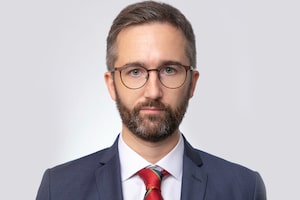Workers prepare the field at Lusail Stadium, in Qatar, on Nov. 18, 2021.HAMAD I MOHAMMED/Reuters
Qatar is facing renewed pressure to improve the rights of migrant workers and LGBTQ people as it prepares to host the FIFA World Cup this month.
When the Persian Gulf emirate was awarded the tournament in 2010, FIFA was widely denounced for handing football’s most prestigious event to a country with a poor human-rights record. Critics pointed to Qatar’s abusive kafala sponsorship system, in which migrant workers were essentially indentured to their employers, and the emirate’s criminalization of homosexuality.
In a new report released Tuesday, the International Labour Organization praised the reforms Qatar has put in place in recent years, including the abolition of the kafala system.
The ILO, a United Nations body, said Qatar has carried out “significant” reforms that have “improved the working and living conditions for hundreds of thousands of workers” and are having an impact across the Gulf region.
But it added that “there is universal acknowledgment that more needs to be done to fully apply and enforce the labour reforms.”
“We all recognize that we are not yet at the finish line, and we will build on this solid foundation to address the gaps in implementation and ensure that all workers and employers can fully benefit from these major reforms,” said ILO regional director Ruba Jaradat.
Last month, Amnesty International warned that “abuses remain rife across the country,” despite positive legal reforms. The organization and other human-rights groups are demanding compensation for workers who have been injured or killed on World Cup projects.
“With the World Cup looming, the job of protecting migrant workers from exploitation is only half done, while that of compensating those who have suffered abuses has barely started,” said Steve Cockburn, Amnesty International’s head of economic and social justice. “It’s also imperative that Qatar commits to improving conditions in the long term. Progress must not grind to a halt once the World Cup road show leaves Doha.”
According to the ILO, at least 50 workers died on construction projects in 2020, the last year for which numbers are available. More than 500 were seriously injured that year, while another 37,600 suffered mild to moderate injuries.
Qatar has been criticized for downplaying work site fatalities by, for instance, not counting deaths from heart attacks or respiratory failure, both of which can be caused by working out in the intense heat of the Gulf region.
In a report last year, The Guardian estimated that, based on figures from their home countries, some 6,500 migrant workers had died in Qatar since the country was awarded the World Cup. Officials in Doha have claimed the figure is misleading, as it includes all migrant worker deaths, including those from projects unrelated to the tournament and workers who may have died of old age or other natural causes.
Qatar’s ruler, Emir Sheikh Tamim bin Hamad al-Thani, hit back at critics last month, saying his country had been subjected to “fabrications and double standards.”
Many Qataris, he said, were questioning “the real reasons and motives behind the campaign.”
There is no sign the criticism and scrutiny will ease up before the World Cup kicks off on Nov. 20 with a match between Qatar and Ecuador. As global attention turns to Qatar ahead of the tournament, pressure is growing on teams and countries to speak out about conditions there, particularly with regard to LGBTQ issues, where far less progress has been made.
Last week, Canada Soccer said it “supports the ongoing pursuit of further progress regarding workers’ rights and inclusivity as Qatar prepares to host the world.”
“We believe that a legacy of this tournament should be to inspire and encourage further improvements in this area, not just in Qatar but across the entire region,” it said in a statement issued after a far more strident missive from Australia.
In a video, 16 Australian players called on Qatar to go further in implementing promised reforms and compensating migrant workers who had suffered mistreatment.
“This must include establishing a migrant resource centre, effective remedy for those who have been denied their rights and the decriminalization of all same-sex relationships,” the players said.
In response, a spokesperson for Qatar’s Supreme Committee for Delivery and Legacy, the tournament organizer, said: “We have committed every effort to ensuring that this World Cup has had a transformative impact on improving lives, especially for those involved in constructing the competition and noncompetition venues we’re responsible for.”
“New laws and reforms often take time to bed in, and robust implementation of labour laws is a global challenge, including in Australia,” the committee added. “No country is perfect and every country … has its challenges.”
With files from Reuters and The Canadian Press.
 James Griffiths
James Griffiths